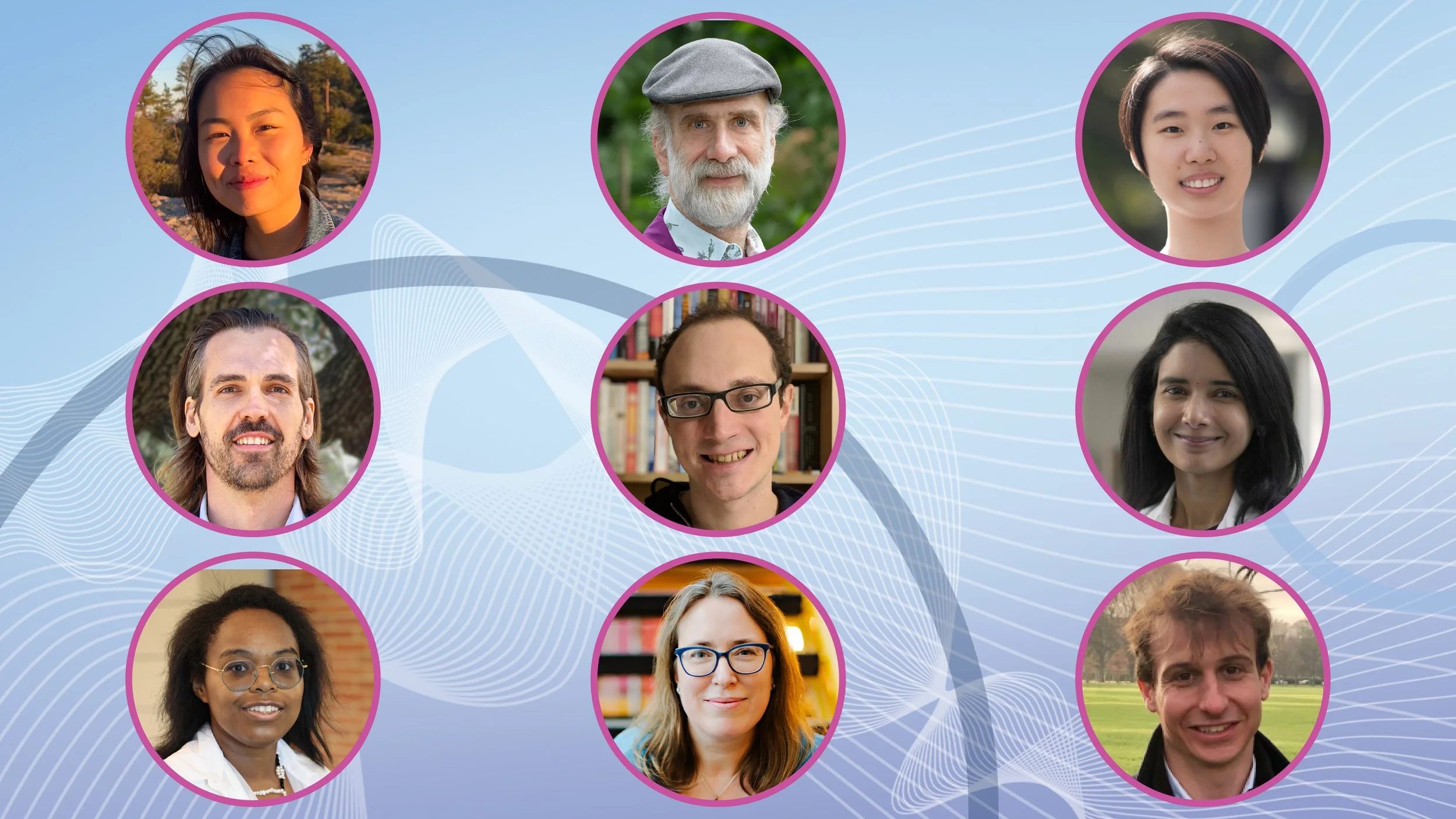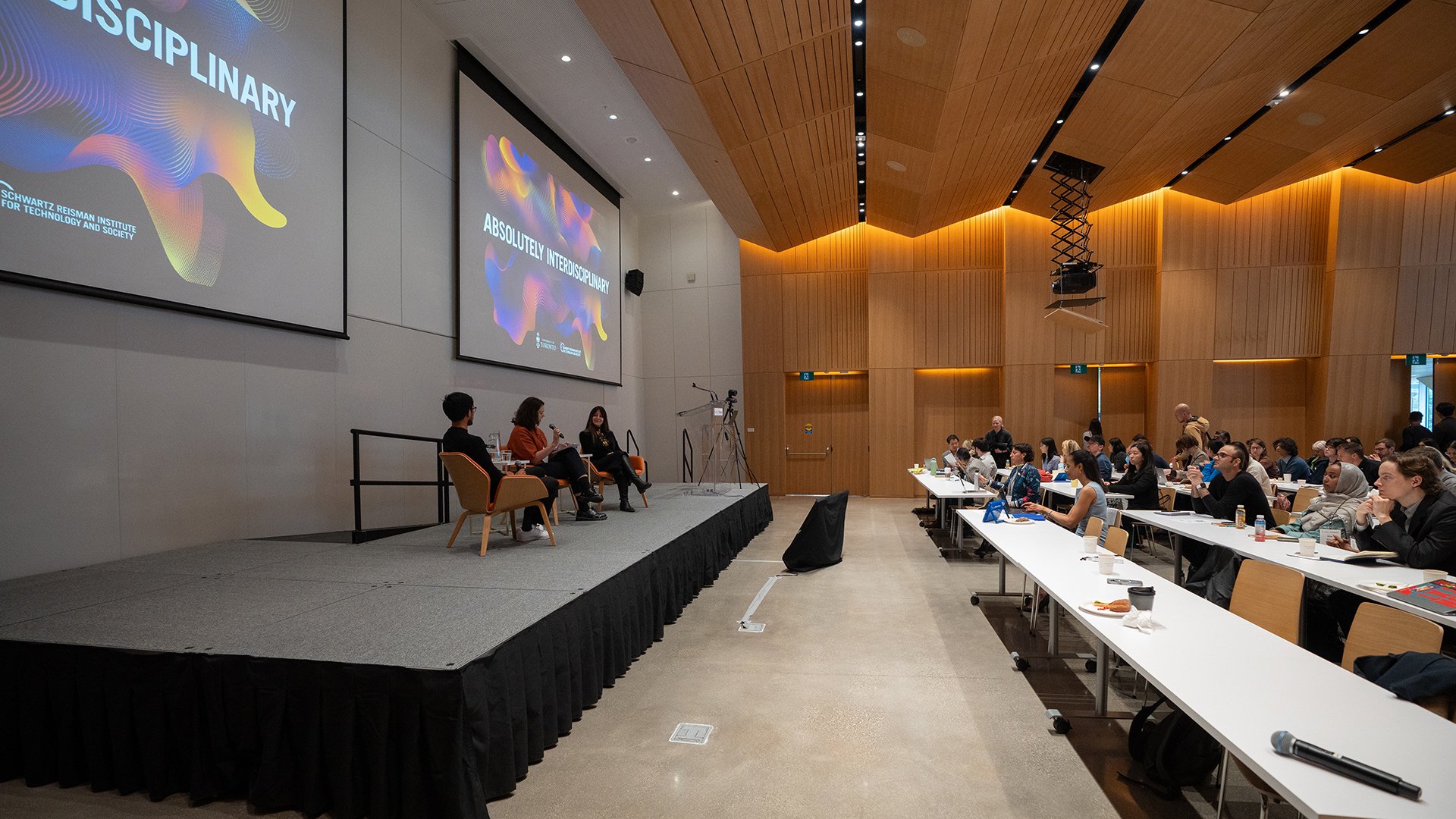WHAT’S HAPPENING
Here’s what we’re thinking about, talking about, and working on at the Schwartz Reisman Institute.
Weekly SRI Seminar Series resumes with leading scholars on AI, governance, and society
The SRI Seminar Series continues in winter 2026 with leading scholars examining AI governance, democratic values, and human-centred technology in the public interest.
Geoffrey Hinton and Jeff Dean in conversation: Recorded live at NeurIPS
A new Radical Talks podcast episode features Geoffrey Hinton and Google Chief Scientist Jeff Dean in a live conversation recorded at NeurIPS 2025, reflecting on the past, present, and future of artificial intelligence—alongside the announcement of the new Hinton Chair at the University of Toronto.
Hinton and Li headline Who’s Afraid of AI? conference on the futures of intelligence
AI visionaries Geoffrey Hinton and Fei-Fei Li headlined Who’s Afraid of AI?, a landmark University of Toronto conference exploring how artificial intelligence is reshaping culture, creativity, and collective imagination. Presented in part by the Schwartz Reisman Institute, the event brought together artists, technologists, and scholars to envision more human-centered futures of intelligence.
The big picture of dangerous capability evaluations: David Duvenaud at the Seminar Series
How can we stay in control when AI systems surpass human intelligence? In a recent SRI Seminar, Schwartz Reisman Chair David Duvenaud explored the frontier of AI safety, alignment, and governance, introducing new research on “dangerous capability” evaluations and control protocols designed to detect when AI models become too powerful to oversee.
David Duvenaud reflects on post-AGI workshop
SRI Chair David Duvenaud shares reflections from the Post-AGI workshop, highlighting the value of diverse perspectives and the challenges of envisioning post-AGI trajectories.
AI in the friend zone: Rethinking companionship
Can we have genuine relationships with AI systems? At the third Technophilosophy Soiree, conceived of and led by SRI Research Lead Karina Vold, leading thinkers from a variety of disciplines explored the social and ethical implications of AI companionship.
Social agentics: Rethinking AI’s role in human worlds
Researchers and scholars spent the day at the Schwartz Reisman Innovation Campus tackling some big-picture questions about the future of AI and society.
Absolutely Interdisciplinary 2025 explores new frontiers in AI research
At SRI’s annual conference, participants discussed future directions and key challenges in AI research, including the complexities of aligning advanced AI with human values and interdisciplinary perspectives on AI safety.
AI and trust: Security technologist Bruce Schneier explores governance in the age of machine agency
The Schwartz Reisman Institute for Technology and Society (SRI) hosted a roundtable discussion on February 11, 2025, as part of the official side events at the AI Action Summit in Paris centered on insights from an upcoming SRI paper, Trust in Human-Machine Learning Interactions: A Multifaceted Approach, led by SRI Research Lead Beth Coleman.
Building trust in AI: A multifaceted approach
The Schwartz Reisman Institute for Technology and Society (SRI) hosted a roundtable discussion on February 11, 2025, as part of the official side events at the AI Action Summit in Paris centered on insights from an upcoming SRI paper, Trust in Human-Machine Learning Interactions: A Multifaceted Approach, led by SRI Research Lead Beth Coleman.
The path to safe, ethical AI: SRI highlights from the 2025 IASEAI conference in Paris
As the SRI community navigates the evolving landscape of artificial intelligence (AI), a critical question remains at the forefront: How can AI be not only effective but also safe and aligned with human values?
Absolutely Interdisciplinary returns this spring to explore new frontiers in AI research
The Schwartz Reisman Institute’s annual academic conference Absolutely Interdisciplinary returns for 2025 to explore interdisciplinary approaches to AI governance, risk and safety.













